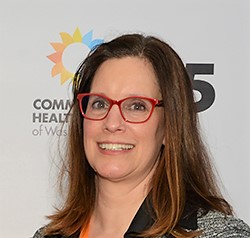Why is dental health important?
It can be hard to find the time and motivation to focus on our dental health.
For many reasons, we all forget to brush and floss sometimes. And of course, we all eat or drink things that may not be the best for our teeth. Finding a dentist and scheduling recommended exams can also be challenging.
But it is important we make our dental health a regular part of our self-care routine. Because it’s about more than a bright smile – it’s for our health too!
The good news is small changes to our daily routines can make a big difference to our dental health.
How can my teeth and gums affect my overall health?
The health of our teeth, gums, and mouth (dental and oral health) affects our health overall. A minor toothache could be a sign of a bigger problem or lead to one.
Some research suggests conditions like heart disease, pneumonia, and birth complications are linked to gum disease and oral health.
How you care for your teeth can affect how you feel head-to-toe.

Strong teeth are important because they help you eat a nutritious diet, including fruits and vegetables. And preventing infections of the teeth and gums with regular brushing, flossing, and cleaning by a dental hygienist decreases levels of inflammation in your body. This even helps improve your heart health and reduces your risk of future memory problems! Oral health sure is important!
– Dr. LuAnn Chen, CHPW Senior Medical Director
Tips for taking care of your teeth and gums
- Brush and floss daily. Brushing your teeth when you wake up in the morning and before bed prevents cavities by removing plaque and bacteria. Use a soft-bristled brush and fluoride toothpaste.
- Visit your dentist regularly. Even if you brush and floss daily, be sure to make an appointment with your dentist for a cleaning and an exam. Regular visits allow your dentist to watch for cavities and early signs of oral disease.
- Eat a well-balanced diet. Try to limit snacks that are sticky and high in sugar. Many of our favorite treats like chips, candy, cookies, and cake can cause tooth decay.
 Routine exams, teeth cleanings, fluoride application, and X-rays are covered directly by Apple Health (Medicaid) using your ProviderOne services card.
Routine exams, teeth cleanings, fluoride application, and X-rays are covered directly by Apple Health (Medicaid) using your ProviderOne services card.What can I expect when I visit the dentist?
Your dentist will clean your teeth, and they may also:
- Take X-rays of your teeth on your first visit
- Examine your teeth for tooth decay and small holes (cavities)
- Check your gums for early signs of gum disease (periodontal disease)
- Apply fluoride to your teeth to help fight future cavities
- Help you improve your brushing and flossing habits
At the end of your exam and teeth cleaning, you may also get a new toothbrush to take home.
What if the dentist finds a cavity?
Cavities happen to everyone. When a cavity is not treated right away, it can grow and get more painful. Treatment can also be more expensive if you wait.
If your dentist finds a cavity during an exam, you may need to return on a different day for treatment. Before you leave the office, schedule your next appointment.
The dentist is for kids too!
Every child should see a dentist when their first tooth appears or before their first birthday—whichever comes first.
Tooth decay is the most common chronic disease in children in the United States, and healthy habits and regular dental exams can help prevent this in your child. Apple Health covers general dental services for kids too, up to age 20.
Finding a dentist
Finding a new dentist or going to the dentist for the first time can be stressful. But we try to make it easy for you. Questions about what to expect? Nervous about how much it might cost? We are here to help.
Learn More
- CHPW Apple Health dental benefits
- Tooth decay in children
- Oral health: A window to your overall health
- Find a dentist


